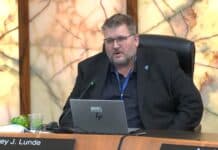Correction:
Students at Bethel University, a Christian school in Minnesota, are unable to found a pro-life club on campus.
________________________________________
Joel Parfrey and John McCauley wanted to start a pro-life group, Students for Life, at Bethel University. Bethel is a private Christian institution located in St. Paul, affiliated with Converge, formerly known as the Baptist General Conference.
However, getting official student-group status required going through the Bethel Student Senate. In the Student Senate decision on whether or not to make Students for Life a club at Bethel, an anonymous vote returned 13 for, 9 against, and 1 abstaining.
It is unclear why the Bethel Student Senate was able to vote anonymously. Nevertheless, the club proposal failed, as it needed a two-thirds majority to pass.
Critics appeared to vaguely blame the vote’s failure on a discrepancy between the written resolution before the Senate and statements made by Parfrey and McCauley during the Senate meeting. For example, Executive Director of Student Senate Sean Doherty cited a “lack of clarity.”
But it appears that this “lack of clarity” was political. As a specific example of the reason for the vote’s failure, Doherty cited how Parfrey and McCauley were asked if they could “work with student groups that held an opposite view.” Parfey and McCauley responded that they would be willing to do a forum where the issue was debated, but that there could be no fundamental agreement between the pro-life and pro-abortion sides over the issue.
The students trying to start the pro-life group even had respected Chemistry Professor Dr. James Christenson as their faculty advisor, to no avail.
Bethel University, after backlash from concerned parents and donors, responded with a statement. In part, it read:
“Some have asked why Bethel’s administration doesn’t intervene in situations like this. In fact, we do, but in a way that honors the living/learning community we foster at Bethel. Learning and personal development can be a messy process. We strive to create a safe space for our students to think critically, learn, explore, and navigate the results of their decisions. In this instance, our student life staff are working with student senators to explore the nuances of this decision. The students who proposed the club are also working to amend and resubmit their proposal.”
Longstanding issues
Controversies over politics and Christianity have long been brewing at Bethel. According to a source, who would like to remain anonymous, Bethel’s upper administration regularly donates to Democratic causes. According to the same source, the faculty has very few conservatives and many of these conservatives feel pressured to keep a low profile.
Several students have also reported anecdotal evidence of an ideological bent at the Christian university. According to one former student, who would also like to remain anonymous, the Christianity and Western Culture course brought in a woman who explained how Islam was a “religion of peace.” To prove that Islam treated women well, she cited that woman were segregated from the men in the back of the Mosque because men would be distracted if women were bending over to pray in front of them. She said that this was because a certain sexual position was more prominent in their culture. The speaker appeared off-balance when asked about actual examples and practices involving the mistreatment of women in the Muslim World (those who argue that women are treated badly don’t do so because of Mosque seating).
Another anonymous student outlined how a History professor tried to prove that “America wasn’t the good guys in World War II” and how much of the glorification of America’s role in World War II was false.
Another student, Samuel Krueger, wrote an article for the Bethel Clarion student newspaper titled “Where’s my safe space?” He outlined how, after election day in 2016, “professors abandoned their lesson plans to rant at their student about the fascist Republicans or in some cases to renounce evangelicalism entirely.” Classes were cancelled too, according to other students, as if a disaster had occurred. Krueger continued:
“Conservatives [at Bethel] are treated differently, and in many cases, poorly. From the day I got involved with College Republicans during my freshman year to the day of the election this year, I was used to seeing our club’s posters torn down or defaced. I was used to getting critical, passive aggressive and self-righteous emails from students and faculty alike on a weekly basis.”
Krueger went on to write how it was the smart strategy for both conservative faculty and students to hide their beliefs:
“So Why are conservatives treated so differently on college campuses? Because unlike how most people think, the university is not a center of open debate about ideas and politics.”











